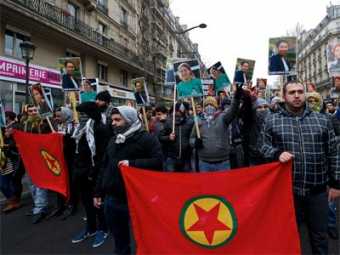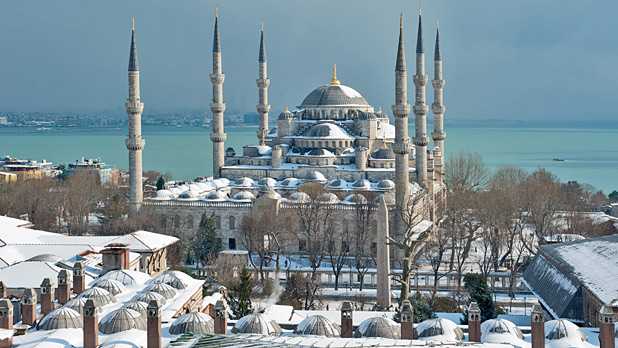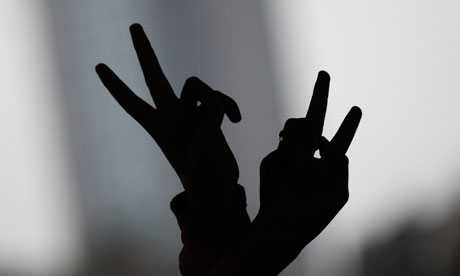By Roy Gutman — McClatchy Newspapers
ISTANBUL, TURKEY — After two major breakthroughs in less than a week – an accord to end a three-year squabble with Israel and a landmark step by a jailed Kurdish leader to settle a 30-year insurgency – Prime Minister Recep Tayyip Erdogan’s star appears to be rising – and with it, Turkey’s role as a major regional power.
Erdogan, 59, a moderate Islamist and a former mayor of Istanbul, is described as a man of passion and plain speech, two characteristics that sometimes get him in trouble, such as when he recently equated Zionism with a crime against humanity.
He seemed matter-of-fact and serious on Saturday as he voiced hope that the Turkish-Israeli reconciliation that President Barack Obama brokered on Friday might even help resolve the Arab-Israeli dispute – though he also called for Israel to return to the borders that existed before its 1967 victory in the Six-Day War, something that Israeli officials have rejected previously.
“My wish is that common sense prevails in this process, and we make this process a permanent one, to end the years-long suffering, with (Israel’s) withdrawal to the 1967 borders,” he told reporters Saturday.
Israel, for the first time in memory, formally apologized for a military operation and promised compensation to families of eight Turks and one Turkish-American killed in the attack against the Mavi Marmara, an aid ship bringing supplies to civilians in Gaza in July 2010.
Erdogan avoided hyperbole as well on Thursday when Abdullah Ocalan, the jailed founder of the PKK guerrilla group, called for his followers to end their three-decade-long military campaign for Kurdish independence in favor of constitutional reform and political struggle. Erdogan termed the move, announced in a letter read before a crowd of 1 million Kurds, a “positive development.”
But close students of Turkish affairs say the twin events could be a turning point for both Turkey’s democracy and the Middle East region, as well as providing Erdogan, who became prime minister in 2003, a longer lease on power, possibly as popularly elected president under a new constitution.
“This is an extraordinarily important set of developments,” said James Jeffrey, who retired last year as U.S. ambassador to Iraq and served as U.S. envoy in Turkey before that. “It shows the capability of Turkey to be an extraordinary player in the region. They have reached these accords with folks they’ve been in conflict with, in one case a diplomatic conflict, in the other a guerrilla war.”
He expressed hope that Israel and Turkey would recognize the need for cooperation in addressing Iran’s nuclear program, which Israel is convinced will produce nuclear weapons, and in addressing Syria, which borders both Israel and Turkey and is now in the third year of a brutal civil war.
“Sooner or later, we’re going to have to do something about Syria,” Jeffrey said. Having Israel and Turkey talking to one another again may help the U.S. find a policy that satisfies both U.S. goals and those of Israel and Turkey, Jeffrey said.
Ahmet Davutoglu, the Turkish Foreign Minister, said the deal with Israel showed the value of Erdogan’s insistence on an apology for the Mavi Marmara incident.
“From the outset, we had a principled approach,” he said in a television interview. “This time Israel felt isolated in the process.” Without the apology, he said, “this issue would not have ended, even if it lasted for a century.”
While the Israel-Turkey reconciliation may have received more headlines abroad, in Turkey, the letter written by Ocalan from his prison on Imrali Island in the Sea of Marmara near Istanbul, got equal billing, and may be of even greater significance.
Davutoglu frequently compares the Kurdish insurgency to “shackles on our feet” and tells visitors: “Once we solve this problem, we will be unleashed from those shackles, and we will be able to use our full potential.”
Other officials have compared the insurgency, which has claimed an estimated 40,000 lives since it began in 1984, to a cancer. The end of the fighting, officials hope, will make Turkey a more attractive place for both investment and as a partner in regional political efforts.
“We will be rejuvenated in every sense,” was the way one official put it.
Davutoglu gave a hint of the optimism Turkish officials hold for the agreement in a visit he paid 10 days before the Ocalan letter was read to Diyarbikar, the mostly Kurdish city in southern Turkey. There, he spoke about the historic significance of reconciliation with the Kurds, who comprise a little less than one fifth of Turkey’s 80 million population.
He said the peoples of what is now Turkey were formed in several major historical waves dating back to the 3rd century B.C. “Whatever anybody says, wherever there is anyone with whom we share this common history, they are our relatives and those with whom we share our destiny,” he said in a speech at Dicli University. “That is also the main element if our foreign policy. When defining this we never differentiate between Turks, Kurds, Albanians or Bosnians. All these are peoples to which we are indebted by virtue of our shared history.”
And then he said reconciliation with the Kurdish minority would liberate Turkey to play a bigger role on the world stage.
“Just such a responsibility rests on our shoulders, my brothers,” he said. The restoration of peace in Turkey “will have a domino effect in other places,” he said. “The winds of the resolution process blowing in here with the spring breeze will result in great spring winds.”






